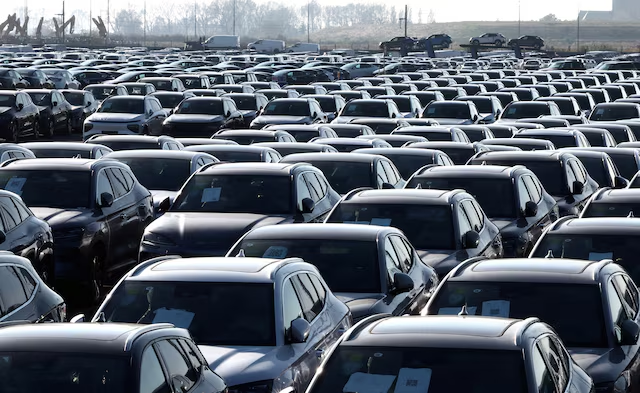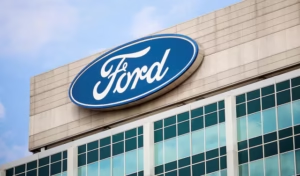Focus: China Bets on Europe to Expand Its Self-Driving Technology Reach

Shut out of the U.S. market, China’s self-driving technology firms are turning their attention to Europe — setting up headquarters, striking data-sharing deals, and conducting road tests — a move that has sparked competitive and security concerns among local rivals.
In China, the world’s largest car market, more than half of all new vehicles — including many entry-level models — now come equipped with some form of autonomous-driving technology, often as a standard feature.
Beijing is encouraging its tech companies to take a leading global role in autonomous-vehicle development while simultaneously drafting national regulations to provide a clear domestic roadmap.
That global push is already underway. In conversations with a dozen executives, Reuters learned how Chinese firms are using Europe as a springboard for international expansion — a strategy similar to the one employed by China’s electric-vehicle manufacturers.
“We’re focusing on Europe as the foundation for our global future,” said Dong Li, Chief Technology Officer of Beijing-based self-driving company QCraft. The firm announced plans for a new German headquarters at last month’s Munich Auto Show, describing Europe as “a more open environment” compared to the U.S.
“There are barriers in the American market,” Li said, referring to U.S. national-security concerns over the data collected by autonomous systems.
Companies say Europe offers a more flexible regulatory landscape — though driver-assistance features remain largely limited to premium models, and developers often complain about inconsistent rules.
European Commission President Ursula von der Leyen on Friday called for greater support for autonomous-vehicle innovation across the continent, acknowledging that such technologies are already a reality in the U.S. and China.
“It should be the same for Europe,” she said.
Chinese Firms Eye Europe as a Growth Market
QCraft, which develops driver-assistance systems, is collaborating with both Chinese and European automakers and expects to bring its technology to the European market within two years.
In China, its Level-4 autonomous buses — capable of operating for extended periods without human input — are already running in 26 cities. Another firm, DeepRoute.ai, which also supplies Level-4 systems, is planning a European data center after exploratory talks with automakers.
Momenta, a leading Chinese autonomous-tech developer that supplies systems to Toyota and General Motors, has partnered with Uber and will begin testing Level-4 vehicles in Germany next year. The company also provides driver-assistance technology to Mercedes-Benz, starting with the electric CLA sedan — the same system now being tested in Europe, according to two sources familiar with the project.
“Europe is the prize,” one of those sources said.
Local Startups Call for Fair Competition
Other major Chinese players — including WeRide, Baidu, and Pony.ai — are also expanding in Europe, said Yvette Zhang, an automotive analyst at consultancy AlixPartners.
Like Chinese EV manufacturers, these firms see Europe as a more profitable alternative to China’s crowded home market.
“Investors expect growth,” Zhang said. “They’re seeking new markets to achieve it.”
Some European startups want stricter oversight, subsidies, or protectionist measures, while others argue that Chinese competition could strengthen the entire technology sector and accelerate Europe’s lagging progress.
Jim Hutchinson, CEO of UK-based Fusion Processing, which plans to test Level-4 driverless buses next year, said tighter supervision was needed to ensure both fair play and security.
“If we’re going to adopt this technology,” he said, “we need strong regulation and a level playing field.”
“Europe Is the Only Market They Can Enter”
Advanced driver-assistance systems that sell at premium prices in Europe are often offered in China at little or no extra cost, as automakers compete in an intense price war.
According to Canalys, roughly 15 million cars — over 60% of total sales — in China this year will feature Level-2 technology, which enables partial automation under specific conditions. In June, Chinese regulators approved nine automakers to test Level-3 systems on public roads, allowing drivers to take their eyes off the road in most scenarios.
Tu Le, founder of consultancy Sino Auto Insights, said that after the Biden administration restricted China’s connected-car technologies, European governments appear comparatively more receptive.
“Europe is the only market left open to them,” Le said. “They have to plan their strategy around that.”
Alex Kendall, CEO of UK autonomous-tech startup Wayve, advocates for an open but well-regulated market, arguing that competition will ultimately drive innovation.
“How many self-driving vehicles are actually operating worldwide today?” he asked. “Not many. There’s still enormous room for growth, no matter where you are.”
At the Munich Auto Show in September, Chinese companies including Momenta, QCraft, Horizon Robotics, and DeepRoute.ai made a strong showing, promoting their lower-cost systems alongside Chinese EV manufacturers.
Momenta’s Level-4 testing with Uber will begin in Munich — home to BMW, one of Momenta’s partners in China. “Our partnership with Uber marks the starting point for a broader European rollout,” said Gerhard Steiger, Momenta’s European president.
DeepRoute.ai CEO Maxwell Zhou echoed that sentiment: “Europe is a vast market,” he said. “It’s very important for us.”
EU Pushes for Unified Rules
While European startups continue testing autonomous technologies, most EU nations still restrict public deployment beyond basic Level-2 systems, which require constant driver control.
The European Commission aims to harmonize fragmented regulations to allow broader testing and eventual deployment of more advanced systems. For now, such trials are limited to a few markets, including the UK and Germany.
Berlin-based Vay, which is testing self-driving taxis and buses in Germany and operates a remote-driven car-rental service in Las Vegas, is also expanding through a new unit, Poppy Mobility, in partnership with D’Ieteren.
Vay co-founder Fabrizio Scelsi supports the EU’s efforts for clearer regional standards and urges governments to back domestic players while embracing foreign innovation.
“Chinese competition will force European firms to move much faster,” Scelsi said. “The race for autonomous dominance is already shifting — and speed will decide who leads it.”

Continuing the achievement of the journey of effectiveness and credibility of more than 10 years in the career of journalism, as a woman journalist, I am Serving as the founder, promoter and editor of DiaryTimes with the trust and support of all. My credible coverage may not have given a big shape to the numbers, but my journey presents articles that make you aware of the exact and meaningful situations of Himachal’s politics, ground issues related to the public, business, tourism and the difficult geographical conditions of the state and financial awareness. DiaryTimes, full of the experience of my precise editorial expertise, is awakening the flame of credible journalism among all of you, so that the eternal flame of meaningful change can be lit in the life of the people of the state and the atrocities being committed against the people can be brought to the fore, I am motivated for that. If even a small change comes with the power of my journalism and the whole world becomes a witness to that issues, then I will consider myself fortunate.





